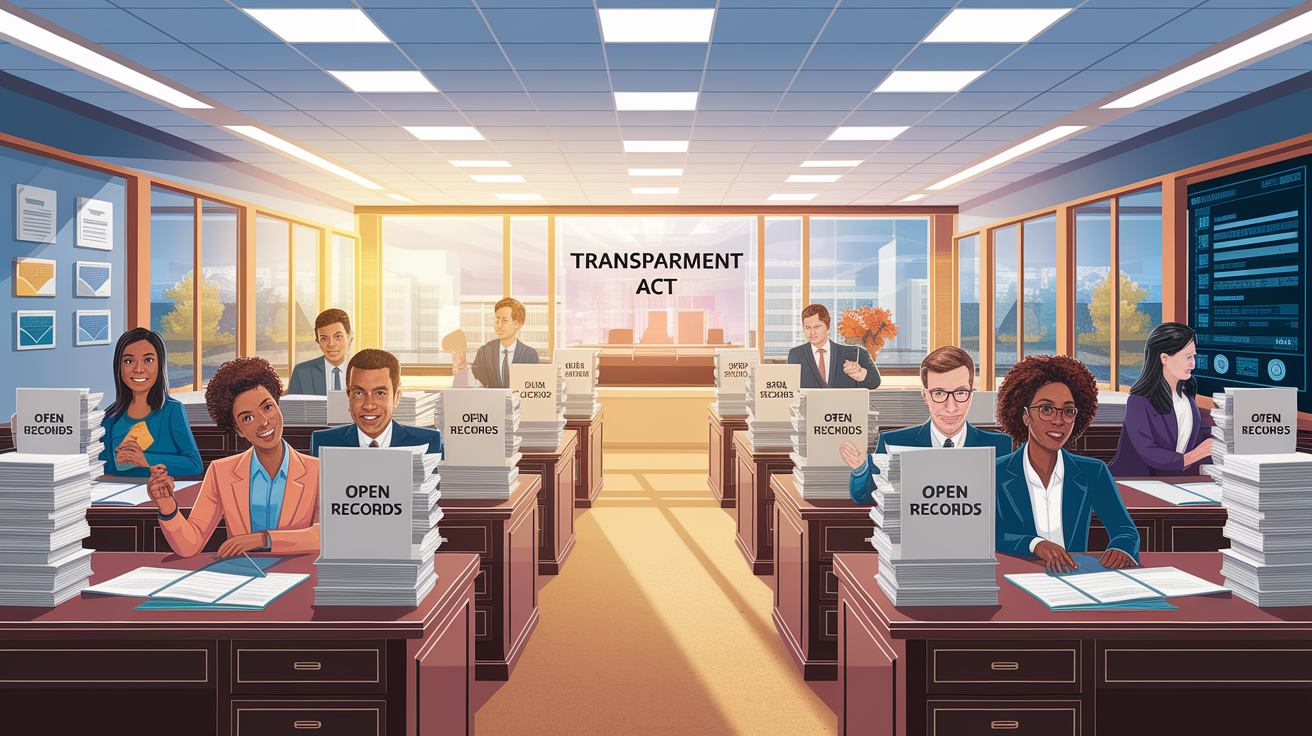Overview of State Open Records Laws and the Sunshine Act
Transparency is more than a principle—it is the bridge between you and the decisions made by your government. State open records laws, often called Sunshine Laws or modeled after the Freedom of Information Act (FOIA), invite you to look through the windows of public administration. These laws are designed to let you access government-held documents, from meeting minutes to contracts, unless an exemption applies for privacy, security, or other sensitive concerns.

Picture standing at the bottom of a mountain with no climbing gear—that’s what it can feel like when you first try to navigate these transparency statutes. The mountain represents complex rules and procedures. But with some guidance and the right tools, the climb becomes not only possible but empowering.
While each of the fifty states has its own version of open records laws—with variations in scope, deadlines for responses, and applicable fees—many extend beyond traditional agencies to include quasi-governmental or privately run entities that perform public functions or receive public funds.
Preparing and Filing an Effective Records Request
Every successful journey begins with preparation. A public records request is your formal way of asking an agency for information. In the language of administrative law, this is the initiation of your “access process”—or simply, your request for details the government holds.

Ask yourself: what exactly do you need? Clarity is your flashlight in the dark tunnels of bureaucracy. Overly broad requests can result in delays or denials, while overly narrow ones may miss critical pieces.
- Identify the correct agency – Make sure you send your request to the department or office that holds the records.
- Specify format and delivery method – State whether you want electronic copies, paper copies, or in-person inspection.
- Reference applicable laws – Mention the state’s Sunshine Act or FOIA-like statute to show familiarity with your rights.
- Include a timeframe – Narrow the scope to relevant dates to reduce search time.
- Draft a clear, concise written request.
- Cite the specific statute or rule that entitles you to the information.
- Submit it in the format preferred by the agency—often via email, online form, or postal mail.
- Retain a copy for your records, noting the submission date.
Remember: most states have legally mandated response times, ranging from just a few days to several weeks, as explained in resources like FOIA 101.
Navigating Responses and Handling Denials
Sometimes you will receive exactly what you requested. Other times, you’ll get partial responses—or outright denials. This is where persistence becomes your compass.
If the agency responds with an exemption, think of it like a locked door. The exemption may be legitimate (protecting privacy, security details, or trade secrets) or it may be misapplied. Knowing which is which requires understanding common records exemption categories.

- Personal privacy protection
- Law enforcement investigations
- Trade secrets and confidential business information
- Security and classified details
If denied, you can usually appeal. Many states have specific “records appeal process” procedures, sometimes involving an ombudsman, other times requiring you to petition a court. Do not hesitate to use them—they exist to uphold your rights.
- Review the agency’s written rationale for denial.
- Check the cited statute sections against actual law.
- File an administrative appeal within the deadline (commonly 30–90 days).
- If necessary, seek judicial review to challenge the denial.
Statistics show that in some states, over 20% of requests face some form of initial denial—yet many are reversed through appeal.
Maximizing the Use of Retrieved Records
Receiving the records is not the end—it’s the beginning of what you can do with them. Think of the documents as puzzle pieces. When you fit them together, they form a clearer image of government decisions and spending.
Open records can empower journalists, researchers, and everyday citizens. Practical applications include:
- Identifying waste or fraud in public spending
- Monitoring policy effectiveness
- Ensuring compliance with transparency requirements
- Facilitating informed public debate
Resources like Good Jobs First show how strategic use of public documents can hold agencies accountable and improve public trust.
Maintaining Compliance and Best Practices
Compliance is a shared responsibility. For agencies, it means keeping records organized, following retention schedules, and responding to requests within statutory deadlines. For you, it means understanding your rights under state transparency statutes and exercising them responsibly.
Best practices include:
- Regularly review your state’s Sunshine Law updates.
- Use available online portals to track requests and deadlines.
- Store retrieved records securely—especially if they contain sensitive but lawfully disclosed information.
- Share findings responsibly, ensuring accuracy in public discussions.
Ultimately, open government laws are the map—and you, the citizen, are the explorer. By learning the terrain, you can traverse even the steepest legal landscapes, uncovering truths that strengthen democracy for everyone.







